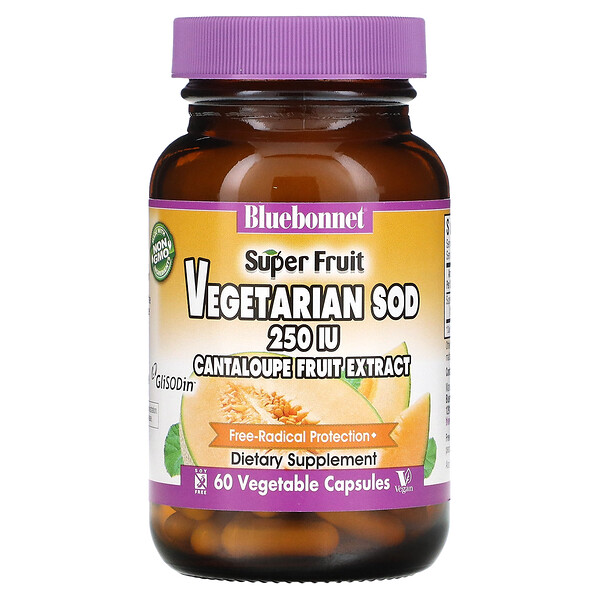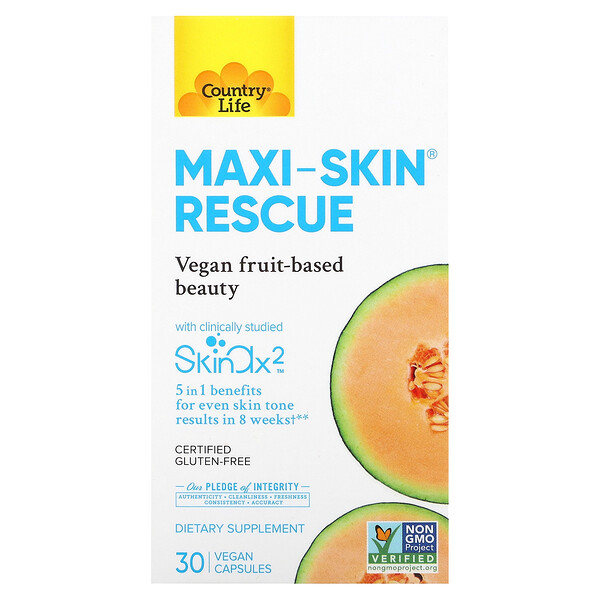A popular fruit with a mild and sweet flavor, cantaloupe is a delicious favorite that provides many important health benefits.
Health Benefits
Antioxidants in cantaloupe help to fight inflammation in the body. They fight free radicals that cause oxidative stress and cell damage, reducing your risk of developing serious health issues such as diabetes, heart disease, arthritis, and more.
Other benefits of cantaloupe include:
Skin Health
A cup of cantaloupe has more than 100% of your recommended daily intake of vitamin A. It also has nearly 100% of your recommended daily allowance of vitamin C. Both of these nutrients play a major role in maintaining skin health. Vitamin A helps to protect the skin from sun damage and vitamin C helps to support your natural collagen production.
Cantaloupe has lutein and zeaxanthin, two antioxidants that give fruits and vegetables their yellow and red colors. Combined with vitamin A, these antioxidants play an important role in protecting your vision and eye health. They may also help to slow the progression of age-related macular degeneration.
Manage Asthma
Beta carotenes, found in cantaloupes as vitamin A, may help prevent asthma later in life. Choline, an antioxidant found in cantaloupes, may also help to reduce inflammation in people with asthma.
Heart Disease Prevention
The fiber, potassium, and vitamin C present in cantaloupe are vital nutrients for your heart health. Potassium can help to lower high blood pressure, which is a risk factor for heart disease. Fiber helps to decrease levels of “bad cholesterol” in your body. It can also keep your blood pressure in check.
Reduced Risk of Cancer
The antioxidants in cantaloupe that fight inflammation and reduce oxidative stress can help to reduce your risk of cancer. The fiber in the fruit can help to reduce your risk of developing colorectal cancer.
Nutrition
Cantaloupes are filled with antioxidants, including beta carotene, lutein, zeaxanthin, and cryptoxanthin. The fruit also has almost 100% of your recommended daily allowance of vitamin C, which is crucial for your immune health.
Other nutrients in cantaloupes include:
Nutrients Per Serving
One cup of fresh cut cantaloupe provides:
- Calories: 54
- Protein: 1 gram
- Fat: 0 grams
- Carbohydrates: 13 grams
- Fiber: 1 gram
- Sugar: 12 grams
Things to Watch Out For
Cantaloupe is an excellent source of potassium. However, eating too much can harm your kidneys. Your kidneys are responsible for processing minerals. If there is too much potassium to process at once, you can develop a condition known as hyperkalemia. Having too much potassium in your blood increases your risk of a heart attack.
Eating too much cantaloupe may also be hard on your intestines and cause diarrhea, stomach cramps, and other digestive problems. If you have cancer, have had bowel surgery, or have an inflammatory condition, you should monitor your fiber intake closely.
Ways to Prepare Cantaloupe
You can purchase whole cantaloupes at most major grocery stores. Melons are often picked before they’re fully ripe to ensure they don’t go bad before they get to the produce section. If a cantaloupe feels heavier than you expect and has a deep, dull sound when you tap on it, it’s most likely ready to eat. You should also check the color of the rind. Ripe cantaloupes are cream-colored or yellow with no signs of green or gray.
If the cantaloupe is ripe, you should store it in the refrigerator. Unripened fruit can be left at room temperature. Only wash the melon when you’re ready to cut it, as moisture on the skin can lead to mold growth. Once cut, cantaloupes should be kept refrigerated.
One of the most popular ways to eat cantaloupe is raw, either on its own or mixed with other fruits as a part of a fruit salad. These aren’t the only ways to prepare cantaloupe, though. Other ways to enjoy it include:
- Making juice and mixing it with sparkling water.
- Blending with other fruits to make a smoothie.
- Pureeing the fruit, adding lime juice, and freezing in molds to make popsicles.
- Skewering with grapes and cheese to make kebabs.
- Grilling them.
- Blending with ripe peaches and a touch of honey for a chilled soup.



Comments
Post a Comment